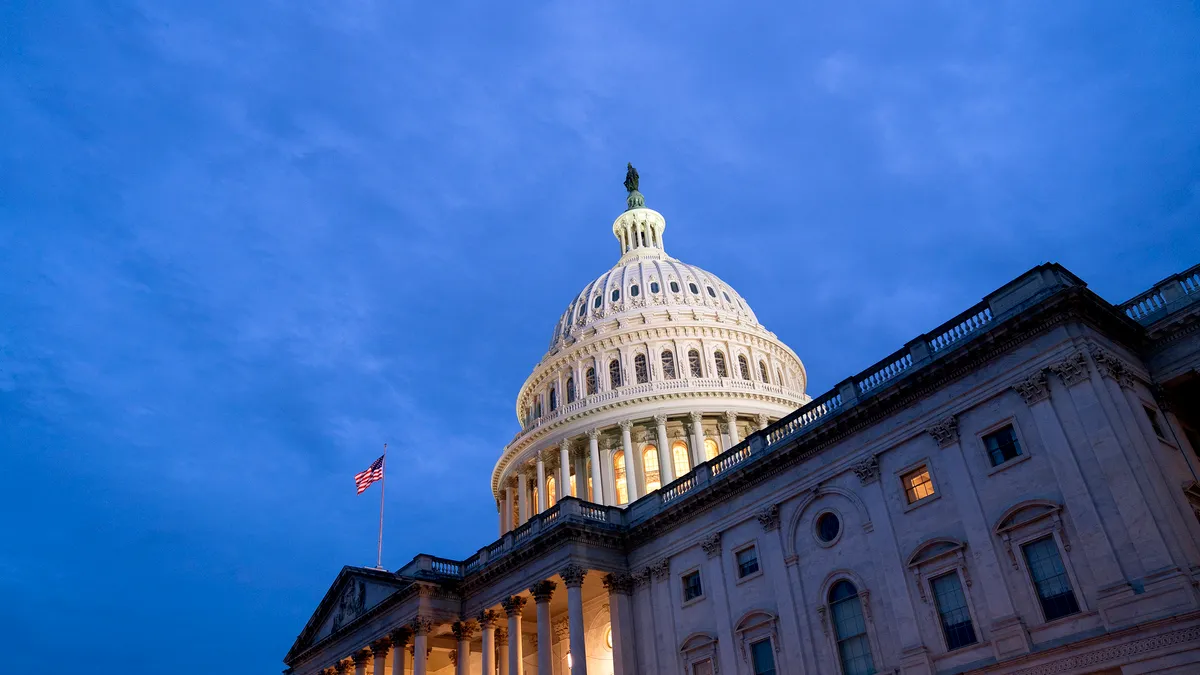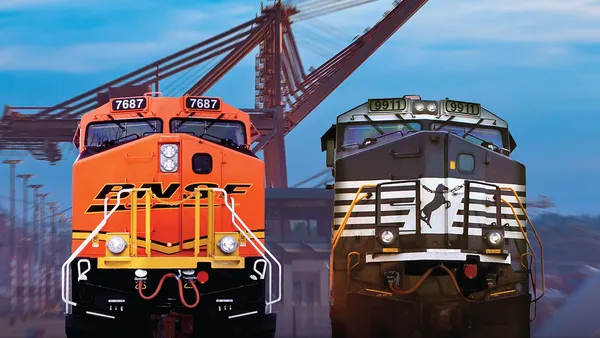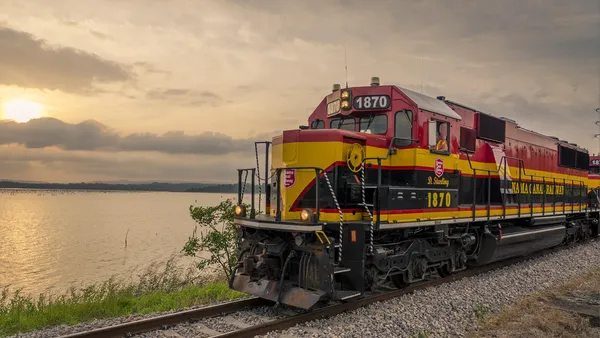Dive Brief:
- Railroads would be prohibited from raising prices during service emergencies under a legislative package introduced this week meant to address the delays and high costs that have dragged down shipper operations for months.
- The measure, introduced last Tuesday by House leaders in areas such as agriculture and transportation, requires rail contracts to include service delivery standards and would greatly expand the power of the Surface Transportation Board to regulate railroads when the agency declares a service emergency.
- The bill also allows shippers who own or lease their own railcars to assess fines on railroads when there are service delays. “This bill will level the playing field and provide railroad customers—many of which are transporting key food and energy products—the service they deserve,” said co-sponsor Rep. Peter DeFazio (D-OR) in a statement.
Dive Insight:
Lawmakers have pressured the STB to do more to address service declines that have stymied transport of agriculture products and critical commodities. Since May, congressional members have sent the agency at least four letters expressing concern over the state of rail operations.
“Given the impact of these rail service disruptions, STB's oversight role is more critical now than ever,” according to a May letter signed by Sens. Tammy Baldwin (D-WI) and Chuck Grassley (R-IA). “As railroads work to address existing challenges through service restoration plans, we urge the STB to examine all constructive options towards ensuring reliable, consistent rail service is available to shippers across the U.S. rail network.”
The bill, dubbed the “Freight Rail Shipping Fair Market Act,” would expand the STB’s power, authorizing the agency to require railroads to maintain adequate equipment, track and personnel when “urgent freight rail problems” exist, according to a fact sheet prepared by the Democratic staff for the Committee on Transportation and Infrastructure.
The legislation would also encourage the STB to issue more financial penalties on railroads to incentivize behavior. The board has used its civil penalty authority just once in the past 10 years, a separate fact sheet said.
“While the Board has exercised its emergency authorities to provide some relief to shippers, more needs to be done,” the note read.
The Association of American Railroads slammed the measure as a regulatory overreach, saying it would take the industry back to before the 1980s when government restrictions on rates and services contributed to a wave of bankruptcies within the industry.
“Safe, reliable, cost-effective and fuel-efficient freight rail transportation is essential to our future,” said AAR President and CEO Ian Jefferies in a statement. “Overreaching re-regulation will take us backward and won’t do a thing to solve current service challenges and supply chain problems.”
Shipper groups, meanwhile, have lined up to urge passage of the bill. Groups such as the American Farm Bureau Federation, the Agriculture Transportation Coalition, the American Chemistry Council and the National Industrial Transportation League have all signed on in support of the measure.
“We urge Congress and the STB to work together on meaningful reforms that will incentivize the railroads to provide reliable and competitive service and hold them accountable when they fail to deliver,” said Chris Jahn, president and CEO of the American Chemistry Council, in a statement.
The STB did not respond to a request for comment on whether the agency supports the legislation. The agency proposed rules in April that would allow rail shippers to more easily petition regulators to intervene in cases of major service issues.














